- Applying to Uni
- Apprenticeships
- Health & Relationships
- Money & Finance
Personal Statements
- Postgraduate
- U.S Universities
University Interviews
- Vocational Qualifications
- Accommodation
- Budgeting, Money & Finance
- Health & Relationships
- Jobs & Careers
- Socialising
Studying Abroad
- Studying & Revision
- Technology
- University & College Admissions
Guide to GCSE Results Day
Finding a job after school or college
Retaking GCSEs

In this section
Choosing GCSE Subjects
Post-GCSE Options
GCSE Work Experience
GCSE Revision Tips
Why take an Apprenticeship?
Applying for an Apprenticeship
Apprenticeships Interviews
Apprenticeship Wage
Engineering Apprenticeships
What is an Apprenticeship?
Choosing an Apprenticeship
Real Life Apprentices
Degree Apprenticeships
Higher Apprenticeships
A Level Results Day 2024
AS Levels 2024
Clearing Guide 2024
Applying to University
SQA Results Day Guide 2024
BTEC Results Day Guide
Vocational Qualifications Guide
Sixth Form or College
International Baccalaureate
Post 18 options
Finding a Job
Should I take a Gap Year?
Travel Planning
Volunteering
Gap Year Blogs
Applying to Oxbridge
Applying to US Universities
Choosing a Degree
Choosing a University or College
Personal Statement Editing and Review Service
Clearing Guide
Guide to Freshers' Week
Student Guides
Student Cooking
Student Blogs
Top Rated Personal Statements
Personal Statement Examples
Writing Your Personal Statement
Postgraduate Personal Statements
International Student Personal Statements
Gap Year Personal Statements
Personal Statement Length Checker
Personal Statement Examples By University
Personal Statement Changes 2025
Personal Statement Template
Job Interviews
Types of Postgraduate Course
Writing a Postgraduate Personal Statement
Postgraduate Funding
Postgraduate Study
Internships
Choosing A College
Ivy League Universities
Common App Essay Examples
Universal College Application Guide
How To Write A College Admissions Essay
College Rankings
Admissions Tests
Fees & Funding
Scholarships
Budgeting For College
Online Degree
Platinum Express Editing and Review Service
Gold Editing and Review Service
Silver Express Editing and Review Service
UCAS Personal Statement Editing and Review Service
Oxbridge Personal Statement Editing and Review Service
Postgraduate Personal Statement Editing and Review Service
You are here
Postgraduate art & design personal statement example.
Although Chinese woodblock printing has a tradition of 2000 years, Chinese print artists have been absent from the international art scene for decades. Over the last years a few exhibitions about modern Chinese printmaking took place outside China, but some major exhibitions at such renowned museums like the British Museum would probably lead to a breakthrough in the international art scene.
Taking into consideration the growing appreciation of Chinese culture and traditions, I am extremely interested in opportunity to expand my professional horizons to reinstate the well-deserved interest and approval of this ancient art. With this purpose, I was excited to learn about your university, well-known for its high expertise in the subjects of creativity; and your unique course, implementing a diverse range of subjects that contribute to an extensive list of skills. Therefore, I would very much like to be considered as a strong candidate for you postgraduate programme.
My fondness for art and aptitude for rational thinking determined my chose of and devotion to the complex discipline of Chinese Printmaking, which includes a number of different techniques and processes like design, carving of the block and printing. In comparison to Japanese, Chinese printmaking is rather composed from several wooden blocks and, in an exclusive technique, would employ only special Chinese water-soluble inks and thin rice paper to produce a print that looks like a watercolor or a traditional Chinese painting.
The success of such a technique entirely depends on the exact humidity of the paper, which is hard to achieve even for an experienced artist. During 4 years of intensive studies, I not only obtained knowledge in every aspect of this art but also learned about digital reproduction of such images, computerized approach to modeling and even web site design.
During my undergraduate studies I played an active role in the university's life by organizing miscellaneous events, parties, seminars and exhibition in as well as outside the institution. The 3rd China Art Academy Exhibition, Cultural Bridge Construction and Carrying Forward The Academic Arts - to name just a few events which included works of painting, calligraphy, design and photography. I personally was selecting a place and art works for expositions, which trained my eye and evaluation skills.
In addition, I was greatly involved in public relations of our university, predominantly by initiating and maintaining contact with sponsors, which significantly enriched my communication skills. Having been a Student Union president for three years, I enhanced my leadership qualities and gained valuable experience in legality, administration and budgeting of activities and exhibitions. As an event manager, I not only coordinated groups of students, working on different projects simultaneously, but also participated in their careful recruitment.
The University also gave me a great opportunity to study English Language as a part of my degree which, in particular, improved my grammar and writing skills. To develop my oral skills, I often interact with international exchange students who come to our university to study art of Chinese Printmaking. I also assisted professors in running their lectures for international students in English. In preparation for my studies in the UK, I familiarized myself with the Harvard referencing system, and, currently, I am trying to learn how to write an academic assay and dissertation.
In my spare time I enjoy swimming and reading biographical books about famous people like Bill Gates, Vincent van Gogh, Munk and others. As a creative person, I like to play with visual space of my room, drawing and painting on the walls and ceiling. My weakness is craftwork, therefore, my interior is decorated with various handmade objects, which I usually buy or make myself.
Your programme would greatly contribute to the weight of my undergraduate speciality in Chinese Printmaking, allowing me to bring the significance and beauty of this ancient art to the international level and effectively present it in the most innovative and creative way. Thus, the professional practice that lies in the grounds of your course provides the essential functional preparation for the career.
In addition, I am intrigued by the opportunity to learn about contentious issues and viewpoints in contemporary art and assess them in relation to the previously gained knowledge and experience. In combination with a strong critical focus that your course offers, collaborative discussions and analyses would provide an engaging approach to develop and apply my individual analytical skills. In particular, I am looking forward to the sessions that would not only enable me to communicate my ideas clearly but also to present information in appealing and captivating for audience way.
Taking into consideration my potentials and enthusiasm I believe I will make a full use of the opportunities afforded to me at your university.
Profile info
This personal statement was written by Elizabeth2 for application in 2009.
Elizabeth2's Comments
It's a draft. Let me know what you think.
Related Personal Statements
Add new comment.
Suggestions in Courses
Suggestions in news.
- No suggestions found.
Suggestions in Events
Writing a pgce personal statement.
If you’re applying to train as a teacher you’ll be required to write a personal statement as part of your application.
Take your time writing your personal statement. It’s your first chance to make a good impression so it's well worth investing time to develop a clear structure and style of writing.
It’s a good idea to proofread your statement thoroughly and get others to read through and check for typos, grammatical errors, style, and tone.
What's the personal statement for?
The personal statement is crucial to your PGCE application; it is used primarily to decide whether to invite you for an interview. A poorly written personal statement could end your teaching career before it has started!
This is your chance to demonstrate what you have to offer as a teacher. You should also explain why you want to teach a particular subject or age range, and how your skills and experience will help you become a great teacher. It’s your chance to show your motivation, commitment and teaching potential and an opportunity to show your enthusiasm for teaching a particular subject or age group.
Remember, you only get one opportunity to write a personal statement for both cycles of applications, so it’s important to keep in mind that you should avoid creating tailored personal statements for each university.
How to write and structure your personal statement
The personal statement is split into two sections totalling a maximum of 1,000 words. It’s important to make sure you do not repeat yourself and to take time to ensure that each section is organised coherently. Divide your writing into paragraphs, each dealing with a particular aspect of the question.
Section 1: Why do you want to teach?
(Up to 600 words).
This is the place to talk about why you think you would make a great teacher. You can include:
- what has led you to choose teacher training
- your understanding of the demands and rewards of the PGCE course and of the teaching profession
- the personal qualities that will make you a valuable asset to a school
- details of any paid or unpaid experience you have of working with young people and what you learnt
- details of any other experiences which you can bring to the teaching profession. Think about any ‘transferable skills’ or qualities which you have developed which may be relevant to teaching.
- If you are a career-changer, what have you been doing and what are your reasons for the switch to teaching?
- your thoughts on children’s wellbeing and the education system
Your personal statement should tell us why you want to teach, your skills and about any experience you might have of working with young people or in the education sector. If you are taking any exams or additional study before starting the course, particularly if this relates to your eligibility to join the course, we want to hear about it.
It should also show that you understand the education system, what challenges teachers face and that you’re engaged with issues around education.
If you’ve not taught before, think about any other things you’ve done that might demonstrate the skills you’ll need to be a teacher (your transferable skills).
Although it’s a good place to expand on your skills and experience, this shouldn’t be the main focus of your personal statement as the rest of the application will showcase this.
Section 2: Why are you suited to teach your subjects or age group?
Up to 400 words.
Remember to not repeat anything you have already said in section 1!
If you’re writing a personal statement for secondary teacher training, use this section to describe your knowledge and experience of the subjects you’ve chosen. Any work experience in the field will be of interest.
What universities are looking for
Universities want to see your passion for teaching and understand why you think teaching this subject or age group is the right career for you.
Your personal statement should be original and honest. Try and avoid clichés or writing what you think we want to hear. All we really want to hear are the real reasons you’re applying to study a PGCE and become a teacher.
If you’re writing a personal statement for primary teacher training, say why you’d like to teach this age group. If you are particularly interested in certain primary subjects or have relevant experience in them, you can talk about that here too.
You could talk about:
- any relevant work or unpaid experience
- your degree and degree modules
- your other relevant qualifications, such as A levels
- any relevant skills, interests or achievements
- your understanding of the national curriculum
Questions your personal statement should answer
- Why do you want to be a teacher?
- Why do you want to teach a particular subject, Key Stage or age group?
- What are your strengths?
- What experience do you have and how has this influenced your desire to teach?
- What skills do you have that would be useful for teaching
The finer details
Your personal statement should be:
- no more than 1000 words
- written in the first-person
- grammatically correct - we suggest writing in a document before adding to your application
- your own work, don’t copy from anywhere online
- structured correctly with a clear introduction, evidenced paragraphs and a conclusion
- proof-read before being submitted
And finally, be prepared to answer questions about what you’ve written in your personal statement at the interview stage!
Find out more about how to get into teaching .
.jpg)
Find out more about how to get into teaching .
Follow us on social!
Facebook Instagram LinkedIn Twitter YouTube
Study a PGCE at London Met


PGCE Primary (3-7) - PGCE
Study this PGCE Primary course and become a qualified teacher of three to seven-year-olds.

PGCE Primary (5-11) - PGCE
Train to teach five to 11-year-olds on this PGCE course that leads to Qualified Teacher Status (QTS).

PGCE Secondary Computer Science with ICT - PGCE
Train to teach Computer Science with ICT to 11 to 16-year-olds and, by arrangement, 16 to 18-year-olds.

PGCE Secondary Computer Science with Maths - PGCE
This London Met Computer Science with Mathematics PGCE is a great option for those who want to combine both disciplines into their PGCE. Apply now.

PGCE Secondary English - PGCE
After completing a Secondary English PGCE with London Metropolitan University, you'll be qualified to teach English to students at secondary school level.
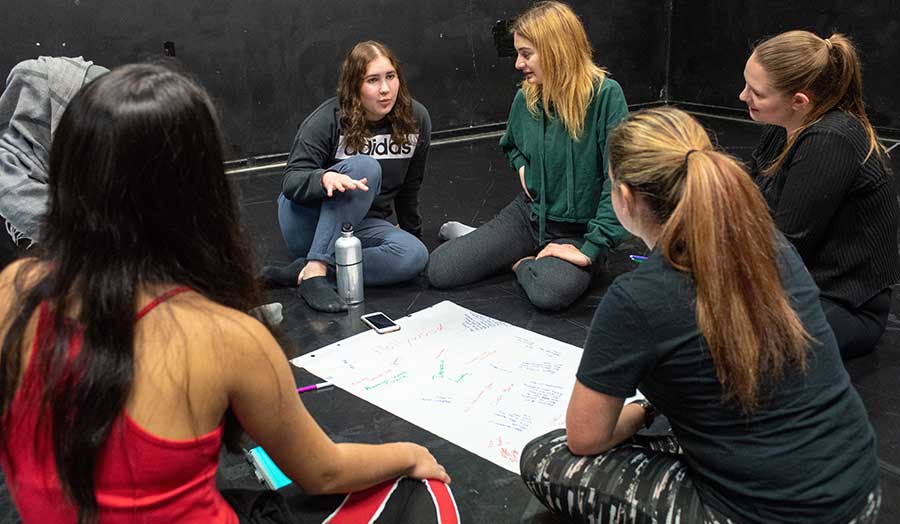
PGCE Secondary English with Drama - PGCE
This course will train you to teach English and Drama to 11 to 16-year-olds and, by arrangement, 16 to 18-year-olds.
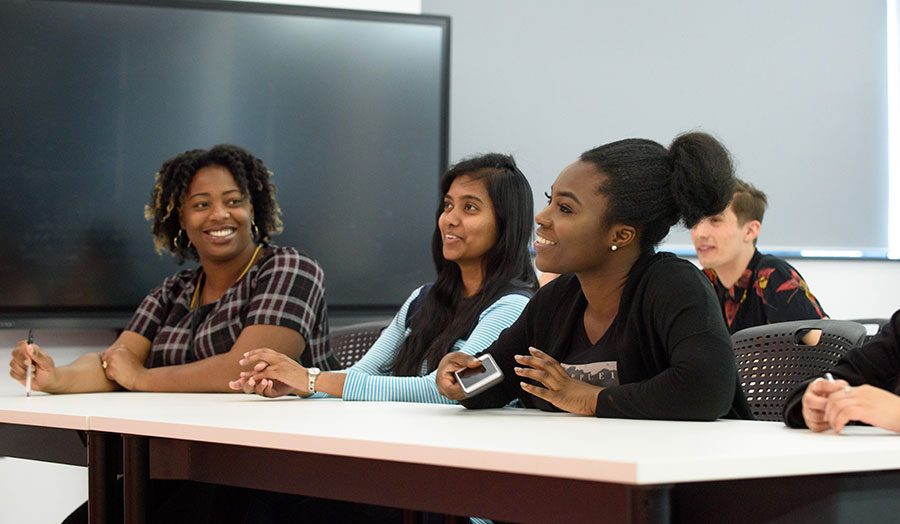
PGCE Secondary English with Media - PGCE
Train to teach English and media to 11 to 16-year-olds and, by arrangement, 16 to 18-year-olds.

PGCE Secondary Mathematics - PGCE
Train to teach maths to 11 to 16-year-olds and, by arrangement, 16 to 18-year-olds. This course leads to Qualified Teacher Status (QTS).

PGCE Secondary Modern Languages - PGCE
Train to teach modern languages to 11 to 16-year-olds and, by arrangement, 16 to 18-year-olds with our PGCE course that leads to Qualified Teacher Status (QTS).

PGCE Secondary Science with Biology - PGCE
Train to teach science and biology to 11 to 16-year-olds and, by arrangement, 16 to 18-year-olds on this PGCE course that leads to Qualified Teacher Status (QTS).
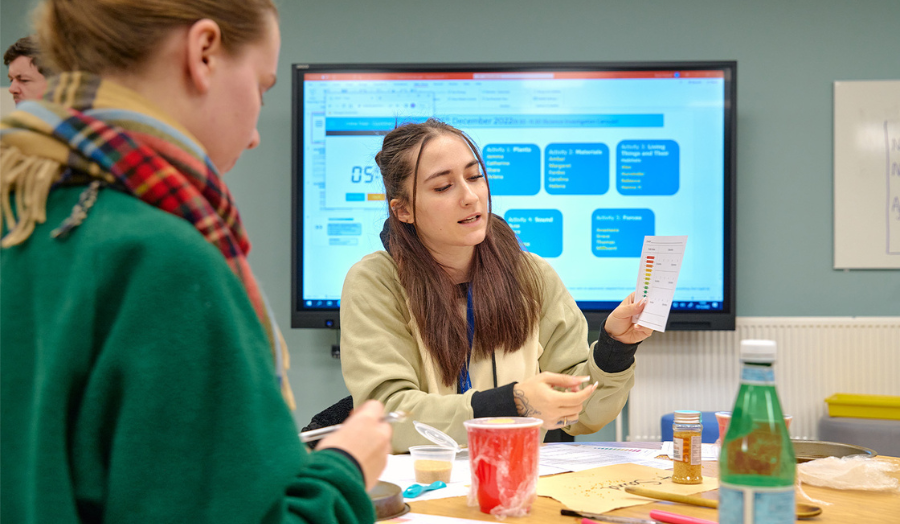
PGCE Secondary Science with Chemistry - PGCE
Train to teach science and chemistry to 11 to 16-year-olds and, by arrangement, 16 to 18-year-olds. This PGCE course leads to Qualified Teacher Status (QTS).

PGCE Secondary Science with Physics - PGCE
Train to teach science and physics to 11 to 16-year-olds and, by arrangement, 16 to 18-year-olds on our PGCE course that leads to Qualified Teacher Status (QTS).
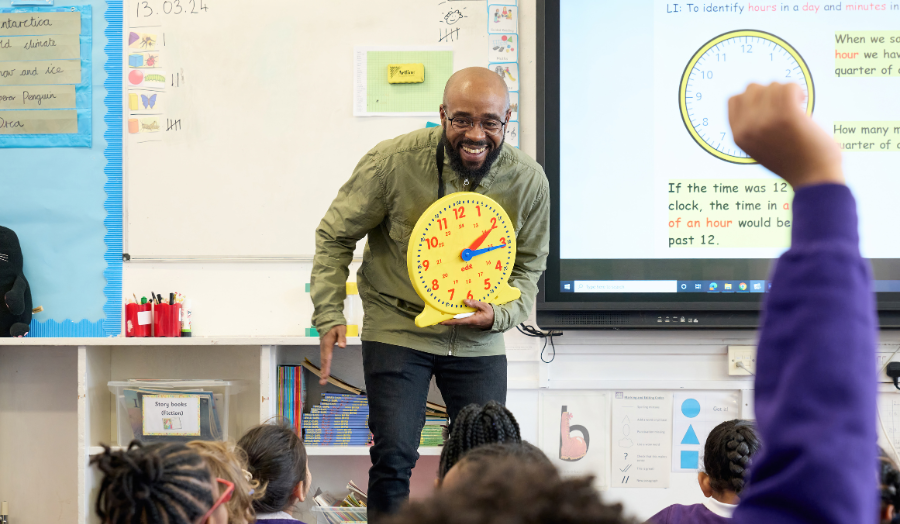
Primary (7-11) (Key Stage 2) - PGCE
Train to teach seven to 11-year-olds on our specialist Key Stage 2 course, with Qualified Teacher Status (QTS).
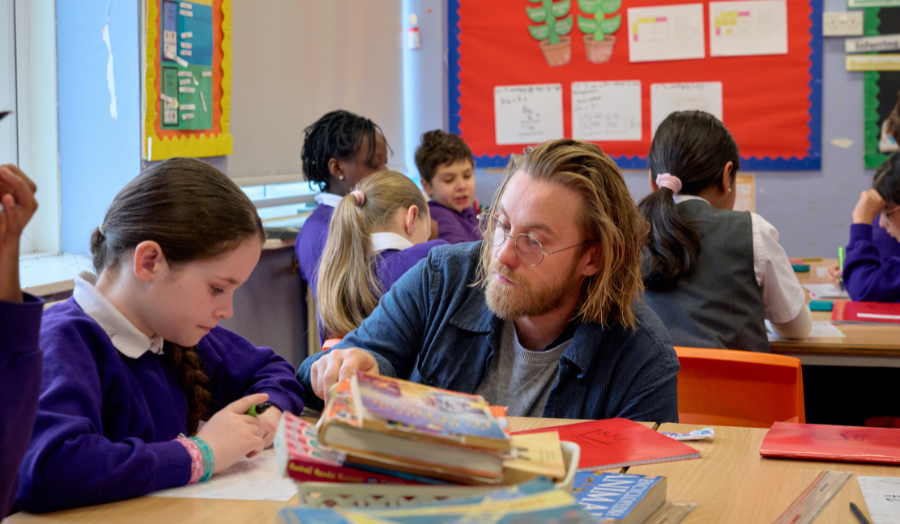
Primary with SEND (5-11) with QTS - PGCE
Study Primary education with SEND on this specialist PGCE course, gain practical experience teaching and Qualified Teacher Status (QTS).
More articles like this...
Checking your eligibility to study a pgce, how to prepare for your teacher training application, how to write a good personal statement for pgce application, what to expect at your pgce interview.

IMAGES
VIDEO